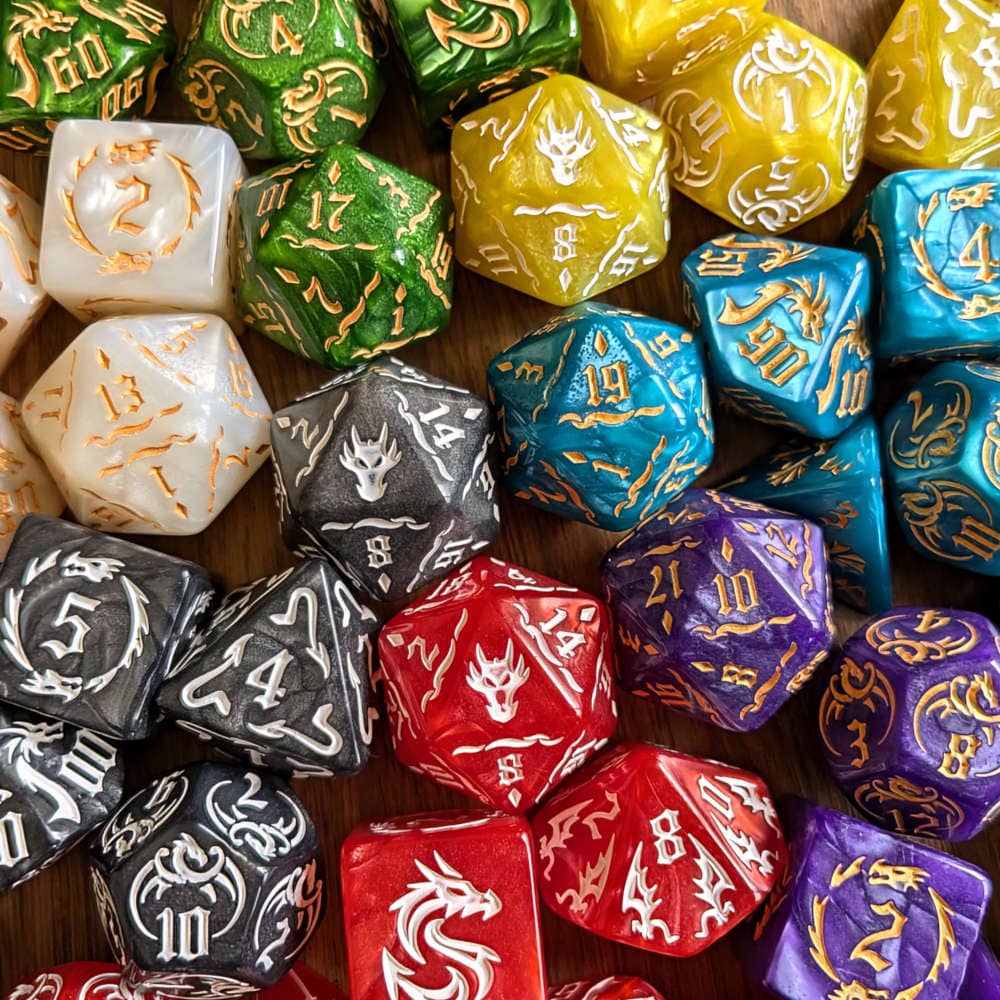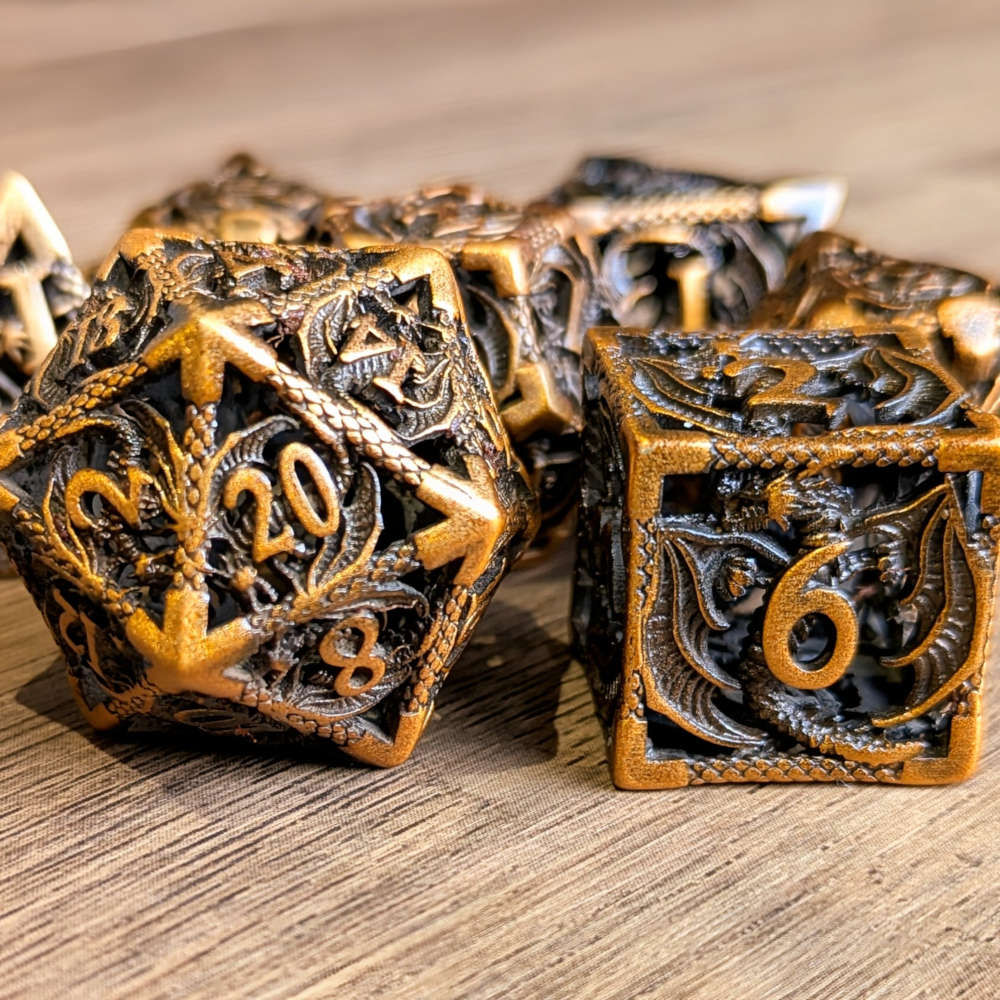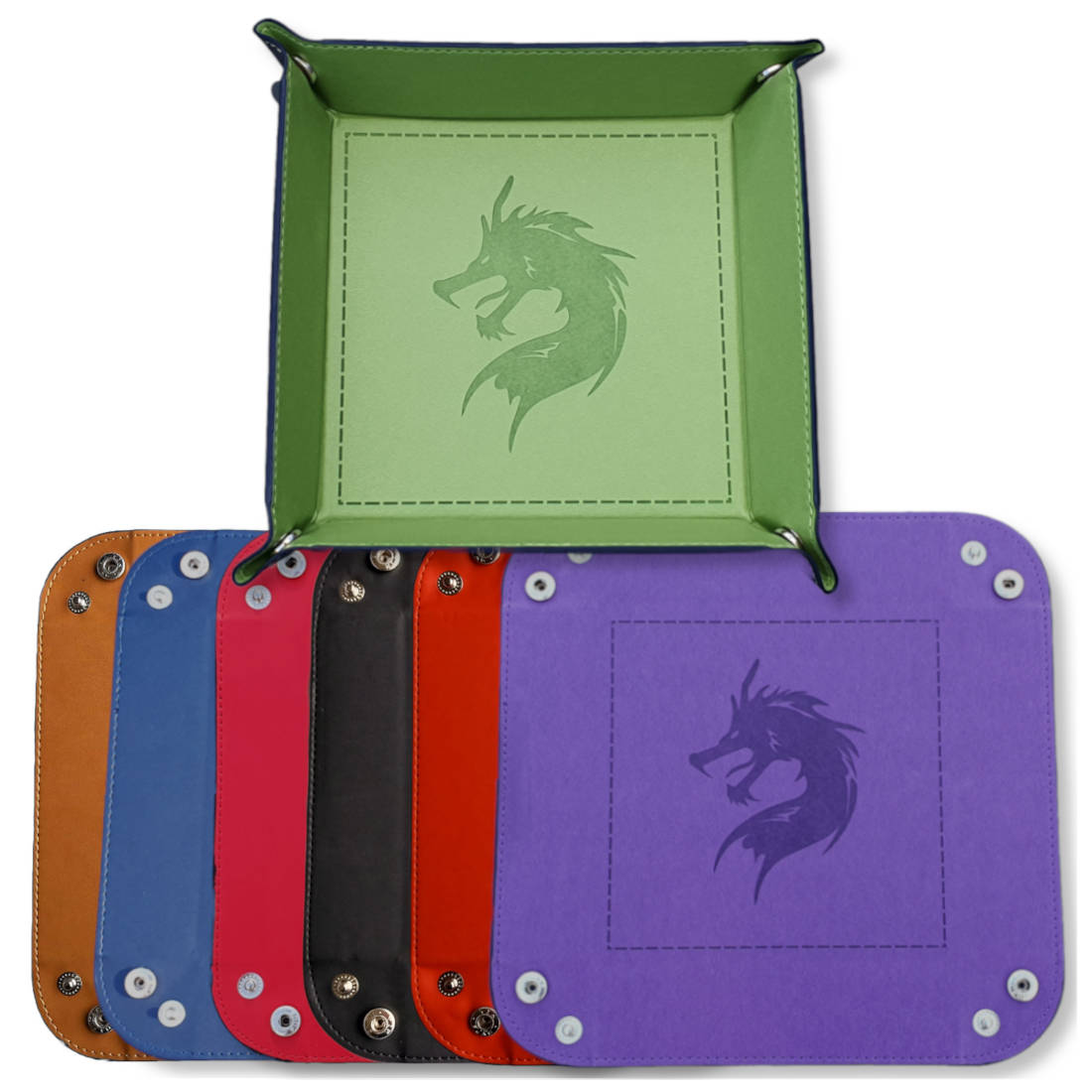How to be a good DM

Becoming a good Dungeon Master (DM) requires a mix of creativity, storytelling, and leadership. Whether you’re just starting or looking to improve your skills, this article will provide you with essential tips for Dungeon Masters.
We’ll cover practical advice to help you craft engaging adventures, manage any above-table drama, and improve your gameplay to create unforgettable experiences.
What makes a good Dungeon Master?
A good Dungeon Master is a blend of storyteller, game master, and leader. While the skills needed to be a great DM evolve over time, they can generally be divided into two categories: gameplay skills and above-table skills.
- Gameplay skills include creating immersive worlds, describing scenes, crafting compelling stories, and designing enticing plot hooks.
- Above-table skills focus on interpersonal abilities like communication, conflict resolution, scheduling, and managing the group dynamic.
Becoming a great DM takes practice and experience, but the rewards of creating memorable adventures and guiding players through them are well worth the effort.
How can I be a better DM for DND?
To get better as a Dungeon Master, start with mastering the fundamentals:
- Have a solid grasp of key rules and mechanics, especially the ones related to player characters.
- Understand your players' abilities, so you can tailor encounters to challenge them while offering moments to shine. It also lets you step in if they get stuck.
- Work on your scene descriptions. The more vivid and engaging your descriptions, the easier it will be to immerse your players in the world.
- Know what you need to run a session. This will make preparing for future sessions easier and less stressful. Check out our DND session preparation checklist.
- If you're new to DMing, start small. Pick an aspect of the game that you enjoy and focus on perfecting it - whether that's storytelling, combat encounters, or NPC interactions. As you become comfortable with one area, you can branch out and build additional skills.
Remember, becoming a great DM is a journey, and it's okay to take it one step at a time. It's entirely natural to feel nervous or anxious before stepping into the role of Dungeon Master (DM). If you're looking for guidance on how to manage these feelings, we have a dedicated guide offering advice for playing D&D with anxiety.
Tips for Dungeon Masters
Here are our tips for becoming a great DM:
1. Manage Your Expectations
Dungeons & Dragons has evolved significantly over the years, and the rise of actual play streams like Critical Role has often set a very high bar for aspiring DMs. It's important to remember that these are professionals who have dedicated their lives to the craft.
As a new DM, start by understanding your style. Are you a merciful or challenging DM? Do you prefer improvisation, or do you like to focus on rules? Embrace your style and play to your strengths. There's no one-size-fits-all approach, so focus on creating an authentic experience that aligns with who you are as a DM.
2. Prepare to Just the Right Extent
Finding the right balance between preparation and flexibility is key. For new DMs, it’s okay to over-prepare for your first few sessions - create outlines for plot points, design NPCs, and craft a compelling world. But avoid overplanning every detail.
The beauty of D&D lies in its unpredictability, and sometimes the best moments come from player improvisation. Prepare a framework, not a script, and leave room for the story to evolve naturally.
3. Keep Your Notes Handy
The unpredictable nature of D&D means that surprises are common. Keep useful resources close at hand, including rulebooks, NPC name lists, and stat blocks for monsters. This will help you react quickly to player choices and avoid getting caught off guard. While you can't anticipate everything, having enough dice as the DM and quick references for combat or mechanics can make the game run more smoothly.
Remember that improvisation is part of the fun, but being prepared can make you feel more confident when things take unexpected turns.
4. Don’t Burn Yourself Out
The DM role is rewarding, but it can also be exhausting. Be mindful of your energy levels and avoid putting too much pressure on yourself. If you're finding it tough to keep up with regular sessions, don’t be afraid to take a break.
Establish a manageable schedule and ensure you're balancing your gaming responsibilities with self-care. Try not to overextend yourself. For example, playing a PC as a DM may seem fun, but it adds an unnecessary burden when you’re already juggling so many other roles.
5. Learn More and Continuously Improve
One of the greatest joys of being a DM is the constant opportunity to improve. Take time to learn from experienced DMs by watching videos, reading guides, or engaging with communities online.
Resources like Matt Colville’s Running the Game series and the r/DMAcademy subreddit can provide valuable insights. Experiment with different techniques: whether it's worldbuilding, roleplaying, or creating NPCs; and seek feedback from your players. The more you learn, the more rewarding your DMing experience will be.
6. Surround Yourself with the Right People
Your players shape the game just as much as you do. Finding the right DND group is key to a successful campaign. Take the time to find players who share your vision and playstyle, and make sure you have the ideal D&D party size.
A session zero is a great opportunity to discuss expectations, boundaries, and play preferences. A respectful and cooperative group can turn your DMing experience into something truly special.
7. Communicate with Your Players
Open communication is vital for a positive gaming experience. Regularly check in with your players to see what they liked or disliked about the sessions, and ask for their feedback. This helps you understand their preferences and tailor your adventures accordingly.
Always provide opportunities for players to ask questions or give feedback. By staying connected with your players, you ensure everyone’s voice is heard and can maintain engagement throughout the campaign.
8. Create a Welcoming Atmosphere
As the DM, you're the gatekeeper of the gaming environment. It's your responsibility to ensure that all players feel safe, included, and valued. Set the tone by fostering an atmosphere of respect, inclusivity, and openness. This helps ensure that everyone feels comfortable expressing themselves in the game and can freely contribute to the narrative without fear of judgment.
A welcoming atmosphere helps build trust and makes for a more enjoyable and engaging experience for all involved.
9. Be Confident in Yourself
Confidence is key when you're at the helm of the game. As a DM, you’re the authority on rules and story, and projecting confidence helps maintain the flow of the game. If a question arises about a rule, being decisive and clear will keep the game from stalling.
It’s okay to make mistakes, but showing your players that you’re in control (even if you’re not 100% sure) ensures they’ll trust your leadership. If you're unsure of a ruling, don’t be afraid to take a quick break to look it up or come back to it later.
10. Lean into Your Players for Support
Don’t hesitate to use your players' creativity to enhance the story. If a player has crafted a detailed backstory, weave it into the narrative to make them feel like an integral part of the world. When players express interest in a particular character, magical item, or quest, try to incorporate those elements into the game.
By collaborating with good D&D players, you empower them to shape the story and keep them invested in the game. Additionally, consider delegating tasks like tracking initiative or managing the session’s schedule to keep things running smoothly.
11. Prioritise Self-Care
Being a DM can be mentally and creatively demanding. Make sure you're taking care of yourself outside of the game to stay energised and engaged. Establish a pre-session ritual, like a quick catch-up with players to help set the mood and ease any tension.
Remember, your well-being directly impacts the quality of your sessions. Schedule breaks when needed and don't let the pressure of running a game overwhelm you.
12. Know When to Break the Rules
D&D rules are designed to create structure, but sometimes the “rule of cool” needs to take precedence. Don’t be afraid to bend or break the rules to foster an epic moment or preserve the flow of the game. Whether it’s allowing a dramatic action to succeed against the odds or improvising a new mechanic on the fly, prioritise the fun and enjoyment of your players over strict adherence to the rulebook.
This flexibility can lead to some of the most memorable and cinematic moments in your campaign.
13. Remember You're Here to Have Fun
The most important thing to remember as a DM is that you're all there to have fun. Don’t stress about perfection. Sometimes, things won’t go as planned, and that’s okay. A bad session is just one out of many, and it’s part of the process. Keep the focus on creating enjoyable and engaging experiences.
The most memorable moments often come from the unexpected or imperfect ones. Embrace the ups and downs, and remember that the goal is fun for everyone, including you!
Can you be a DM without the Dungeon Master’s Guide?
Yes, you can absolutely be a DM without having read the Dungeon Master’s Guide (DMG). For new DMs, the DMG can be helpful for tips on world-building, encounters, and storytelling, but it’s not a necessity.
To ease into the role of DM, consider starting with a one-shot adventure or a pre-written module like Dragons of Stormwreck Isle. These provide detailed instructions and resources, allowing you to focus on learning the basics before jumping into a full campaign. We've also created some pre-written adventures for D&D that you can try!
How do you know if you’re a great DM?
If you're concerned about being a good DM, that shows how much you care about your game, your players, and the experience you're creating - and that's already half the battle. The true measure of a good DM is fun. If you and your players are having fun, you're likely doing a great job.
A welcoming atmosphere where players feel included and eager to contribute to the story is another key sign.
Plus, if your players consistently show up on time, it’s a clear indicator that they’re enjoying the adventure you’ve crafted.
Keep focusing on fun, stay open to feedback, and remember: if you're engaging your players and creating memorable sessions, you're already a great DM.
Guides and tools for Dungeon Masters
As you work on becoming a better DM, remember that practice is key. Embrace the learning process and cherish the moments of laughter, suspense, and excitement that you and your players create together.
To support your growth as a DM, check out our guide on avoiding DM burnout, designed to help you maintain your enthusiasm and keep your sessions fresh.
Additionally, don't forget to explore our collection of D&D dice sets and tabletop accessories. From dice, to dice trays and D&D enamel pins, we’ve got everything you need to elevate your adventures.





